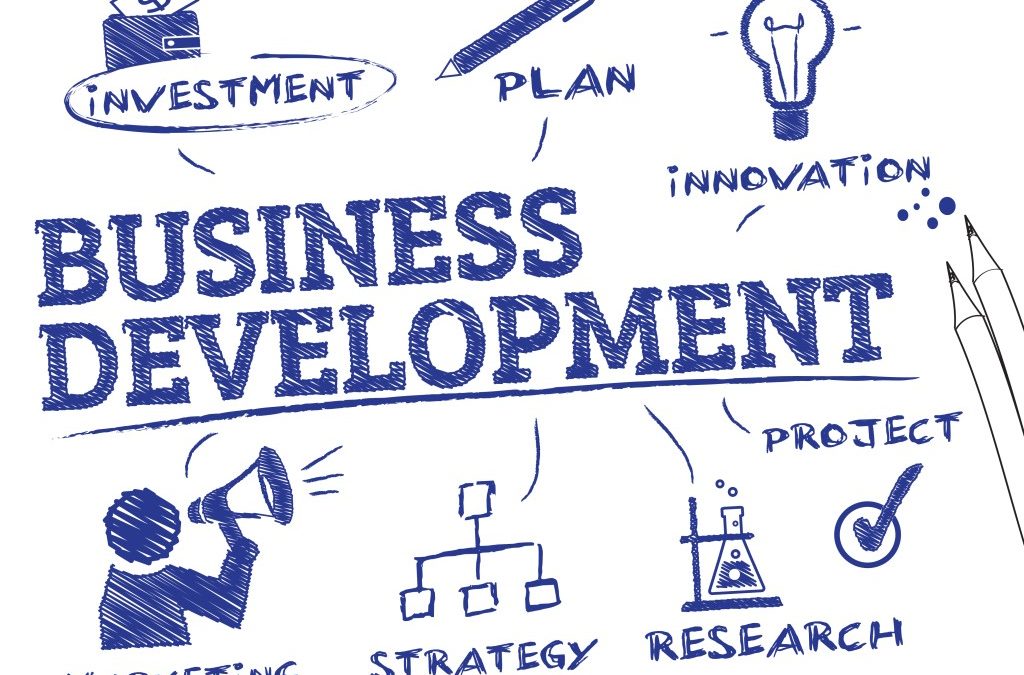Business development is the engine that drives growth for any company.
It’s the strategy behind finding new opportunities, expanding into new markets, and building valuable relationships.
In its simplest form, business development is about figuring out where the business is today, identifying where it wants to go, and creating a clear roadmap.
It might seem straightforward, but business development is anything but simple.
It’s an art and a science, combining creativity with practical planning.
And that’s why it’s so crucial for the success of any business.
Let’s dive into business developments and why it matters in today’s fast-paced, ever-evolving business world.
The Core Pillars of Business Development
There are several vital components that makeup business development.
These elements work together to grow a business in both size and profitability.
- Partnerships: One of the most significant aspects of business development is establishing strategic partnerships.
A good partnership can open doors to new markets, provide access to new customers, or add valuable resources.
For example, when Uber partnered with Spotify, it allowed passengers to control their music during their rides, enhancing the user experience for both companies’ customers.
- Market Expansion: Another pillar is expanding into new markets.
This might mean entering a new geographical region or targeting a new audience segment.
Think about Netflix.
It started in the U.S., but its business development team saw an opportunity to expand globally, which was critical in making it a household name worldwide.
- Customer Acquisition: Without customers, there’s no business.
Business developments focuses on finding ways to acquire new customers, whether through direct sales, partnerships, or marketing initiatives.
This involves understanding customer needs and presenting solutions that add value.
A great example is Apple’s business developments strategy of cultivating a loyal customer base with new and innovative products while continuously expanding its ecosystem through services like Apple Music and iCloud.
- Innovation and Product Development: Business developments isn’t just about external growth.
It also involves internal growth, specifically through product development and innovation.
As markets change, businesses need to evolve and improve their offerings.
Companies like Tesla thrive on this principle, continually innovating to maintain their competitive edge.
How Business Development Differs from Sales
At first glance, business developments and sales might seem the same.
Both aim to grow the business, but there’s a difference between the two.
Sales is about closing deals and generating revenue from existing products or services.
It’s more transactional, with a focus on short-term gains.
On the other hand, business development is about creating long-term value.
It’s more strategic, focusing on building relationships, identifying new opportunities, and creating a sustainable path for growth.
Business developments professionals often work closely with the sales team, but they aim to lay the foundation for future sales rather than to make them directly.
Real-Life Example: Slack’s RisSlack’sgh Business Development
Let’s look at how Slack used business developments from a small team communication tool to a global business solution.
Slack didn’t start or have a massive advertising budget or a huge sales team.
Instead, they focused on creating partnerships and integrations with tools like Google Drive, Dropbox, and Trello.
By doing this, they positioned themselves as an indispensable team tool, making it easier for businesses to incorporate Slack into their existing workflows.
This strategic approach to business developments helped them proliferate without relying solely on traditional sales tactics.
The Role of Networking in Business Development
Networking is a critical ingredient in business developments.
Building relationships with potential partners, clients, and influencers can open up opportunities that wouldn’t exist otherwise.
It’s more than just collecting business cards or connecting on LinkedIn—it’s about ensuring meaningful connections.
For instance, a business developer might attend industry events, conferences, or seminars to meet key decision-makers.
These relationships often lead to partnerships, collaborations, or referrals, all essential for business growth.
In many cases, a successful business developments professional isn’t just isn’t at pitching ideas—they’re excellent at building trust and fostering long-term relationships.
The Importance of Research in Business Development
Research plays a vital role in business development.
Companies need to understand the landscape before entering a new market or forming a partnership.
This involves researching competitors, understanding customer needs, and identifying potential obstacles.
Take Amazon, for example.
Before launching in India, Amazon’s development team extensively researched the market’s challenges, like the country’s infrastructure and payment preferences.
As a result, they were able to tailor their approach and successfully enter one of the world’s most competitive e-commerce markets.
Business Development Strategies for Startups
For startups, business development is often the key to survival.
In the early stages, startups need to increase to gain a foothold in the market, and business developments can help them do that.
One of the most effective strategies is to form strategic partnerships with more established companies.
This can give startups access to a broader audience and resources they wouldn’t have needed. An example of this is the early days of Airbnb.
They partnered with Craigslist to reach users looking for short-term housing options.
This gave Airbnb a massive visibility boost and helped it grow exponentially in its early days.
The Challenges of Business Development
While business developments can lead to significant growth, it also has challenges.
One of the biggest obstacles is uncertainty.
No matter how much research is done, there’s always the possibility that a new market won’t respond as expected or that a partnership won’t deliver the desired results.
Another challenge is balancing short-term and long-term goals.
While business development is focused on long-term growth, companies still need to meet short-term revenue goals.
This can create tension between the business developments team and sales departments.
Finally, business developments requires a certain level of patience and persistence.
Building relationships and identifying new opportunities takes time; the results are only sometimes immediate.
However, the payoff can be huge for companies willing to invest in business developments.
The Future of Business Development
Business developments constantly evolves, particularly with the rise of new technologies and shifting market dynamics.
One of the biggest trends shaping the future of business developments is digital transformation.
As more businesses move online, new growth opportunities exist, particularly in e-commerce, SaaS, and digital marketing.
At the same time, businesses need to be more agile than ever before.
The pace of change in today’s market is rapid, and companies need to be able to adapt quickly to stay competitive.
This means that business development professionals need to be forward-thinking, always looking for the next opportunity or trend that could shape the future of their industry.
Conclusion: Why Business Development is Crucial for Growth
In today’s competitive landscape, business development is more critical than ever.
It’s the driving force behind long-term growth, helping companies expand their reach, build valuable partnerships, and innovate to keep them ahead of the competition.
A solid business developments strategy can make all the difference, whether you’re looking to gain traction or an established business aiming to break into new markets.
Business development is about creating value and seizing opportunities, from networking and research to market expansion and innovation.
As the business world continues to evolve, those who invest in business developments will be the ones who thrive.
A Quick Recap on Business Development
- Business development is all about growth and creating long-term value.
- The core elements include partnerships, market expansion, customer acquisition, and innovation.
- It’s from sales, which is focused on short-term goals.
- Real-life examples, like Slack and Airbnb, show how strategic business development can lead to rapid success.
- While business developments can be challenging, especially with market uncertainty, it’s essential for sustainable growth.
- As technology and markets evolve, so will the strategies behind business development.
Ultimately, business development is the beating heart of a company’s strategy.








Comments are closed